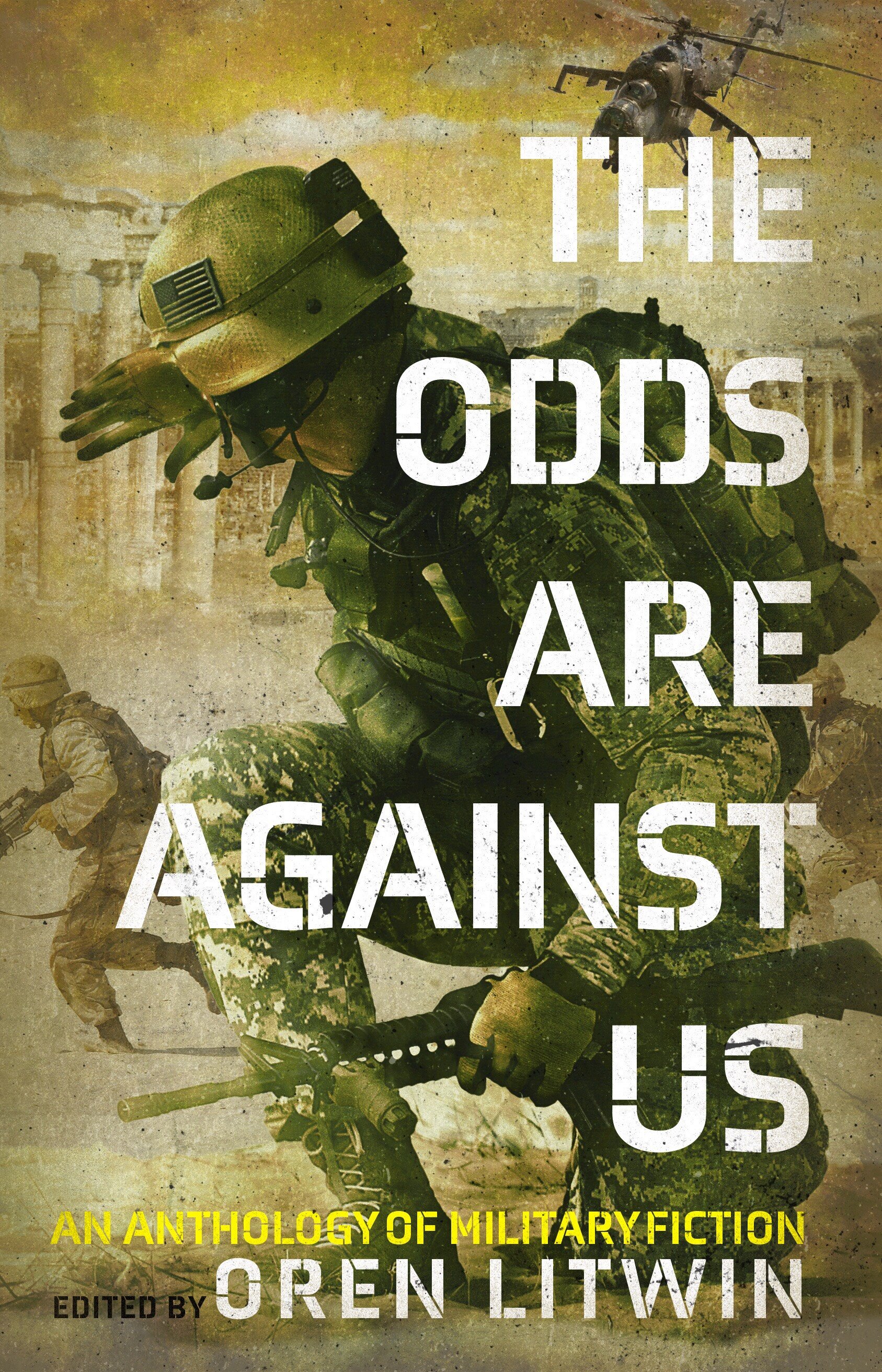From a Marine in Vietnam trying to get back home, to Roman soldiers facing an Iceni rebellion; from cynical mercenaries in the harsh Chadian desert, to a Yazidi girl fighting for her freedom; from Soviet conscripts trying to survive war in Afghanistan, to American bomber pilots lost at sea.
Experience the triumph of the human spirit even in the face of death.
Includes eight short stories of military fiction from from skilled authors, some of whom are veterans themselves.
Click here to purchase The Odds Are Against Us: An Anthology of Military Fiction
Featuring works by:
Joseph Benedetto
Ron Farina
John M. Floyd
Jake Lithua
Sophie Michaels
Frank Scalise
Janis Snepsts
Jim J. Wilsky
Edited by Oren Litwin
Introduction
By Oren Litwin
Why do we find war stories so compelling?
Is it the violence? True, violence has its own attraction, as a cursory look at television will show. But violence without meaning quickly loses its impact, and becomes mere spectacle. And the best war stories are about more than simple violence; some don’t even feature combat at all.
Is it about the high stakes? After all, the risk of death is ever-present in wartime, in ways that other kinds of fiction rarely explore. More than that—the fate of nations and empires can ride on a single battle, even the deeds of a single soldier. Wars can alter the grand sweep of history, so that reading of them touches on some awful sense of the infinite.
For me, part of what makes a war story powerful is that warriors come face-to-face with the most terrible hardships we ever experience. And to survive and overcome, a warrior needs to develop virtues—courage, honor, commitment, personal strength, and character. At a time when many people dismiss the importance of character and virtue altogether, the military recognizes that virtue is as vital now as it ever has been.
There are many kinds of martial virtues. Courage, to be sure. Endurance in the face of hardship. But war also requires intelligence and cunning, so that a warrior can outwit a determined foe. War and the military provide an arena for cultivating the virtues like few others that we ever experience.
Today, most published military fiction emphasizes the opposite. During war, in this telling, humanity breaks down, the virtues are exposed as hollow frauds, we regress to the level of animals and worse. There is some truth in this telling, as anyone connected to the military knows. But it is not the whole story. Indeed, today veterans are often recognized as high performers in their fields, having been trained to confront obstacles, overcome them, and endure in the face of challenges.
Yet authors who wish to tell the rest of the story, of war and conflict as a means of cultivating virtue, have few outlets today for publication. Editors want irony and psychological trauma. Unless one decides to take refuge in military sci-fi (which is somewhat more hospitable to “old-fashioned” tales of heroism and character), an author seeking to explore the military virtues is unlikely to see print.
This collection of short stories is meant to give such authors a voice. To be considered for inclusion, stories had to respond to the theme of “the odds are against us.” The resulting stories are a welcome breath of fresh air. They ask why warriors choose to face the danger of combat, and what virtues allow them to triumph.
In “A Place More Kind Than Home,” a young Marine returns from Vietnam to discover where his home truly is. In “Command Decisions,” the commander of a small sheikdom’s royal guard must protect the queen and the kingdom’s treasury from encroaching rebels. In “Shuravi,” a conscript from Latvia endures the cruelty of Soviet military service and the perils of Afghanistan. The remnants of Britain’s once-Roman legions defend against Saxon invasion in “The Battle of Anderida Forest.” An enslaved Yazidi girl saves an American Green Beret from ISIS and discovers the nature of “The Most Powerful Weapon.”
Two Roman legionnaires fighting Iceni rebels realize why they are risking their lives in a war they don’t understand in “Titus, My Brother.” In “Interception in the Desert,” a cynical mercenary commander in northern Chad must navigate hostile rebels, an unforgiving desert, and layers of deceit to find a dangerous Libyan spy. Finally, in “Dead Reckoning,” a World War II Avenger bomber flies far off course during an ill-fated training run, and its crew must find their way back home.
Giving a voice to our warriors is about more than just military fiction. It is about recognizing in fiction the importance of virtue itself. If you believe that success in life is not something you are born with but something that comes about through building character and virtue, it can be hard these days to find stories that speak to your sense of the world. It is my hope that this anthology provides the stories that you are looking for.


Comments